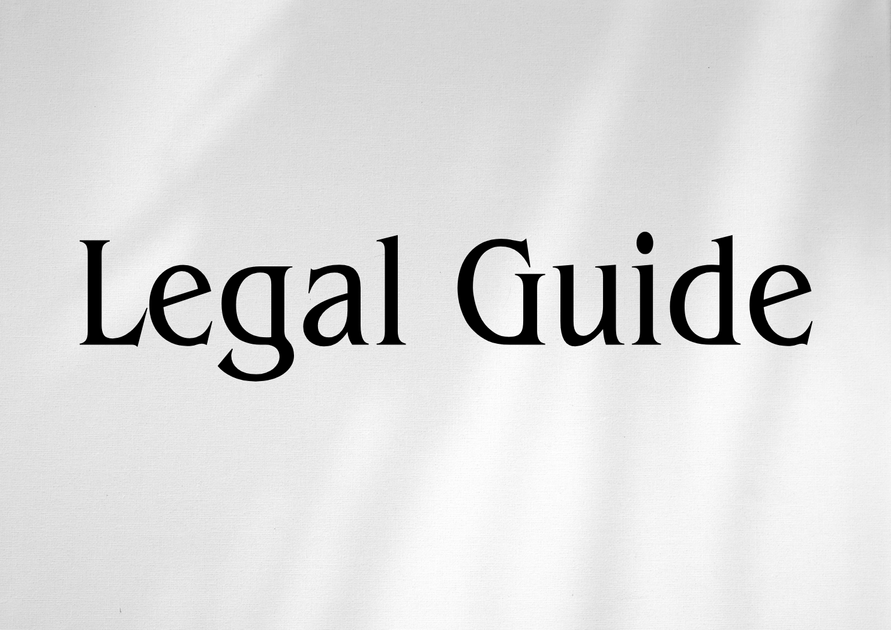Introduction: The Strategic Role of Arbitral Awards and Their Enforcement in the UAE
In the dynamic commercial landscape of the United Arab Emirates (UAE), effective dispute resolution mechanisms are central to sustaining business integrity and trust. Arbitration has emerged as a preferred route for resolving commercial disputes, particularly in sectors where efficiency, confidentiality, and enforceability are paramount. This prominence has increased in light of recent legislative developments—most notably, amendments brought by Federal Decree-Law No. 6 of 2018 on Arbitration and subsequent updates through 2023 and 2024.
For businesses and legal professionals, understanding the lifecycle of arbitral awards—from rendering to recognition and enforcement—is not just a theoretical concern; it is a critical strategic imperative. With the UAE reaffirming its commitment to international standards under the New York Convention and reinforcing local legal infrastructure for arbitration, staying current with legal updates in 2025 is vital for compliance, risk management, and proactive dispute resolution.
This comprehensive guide demystifies the legal framework for arbitral awards and their enforcement in the UAE, examines recent reforms, analyzes real-world implications, and provides actionable advice to help organizations avoid pitfalls and secure favorable outcomes.
Table of Contents
- The UAE Arbitration Legal Landscape: An Overview
- Arbitral Awards Defined Under UAE Law
- Mechanisms for Enforcement of Arbitral Awards
- Domestic vs International Enforcement: Key Distinctions
- Recent Legal Updates Driving Change in 2025
- Risks of Non-Compliance and Penalty Overview
- Strategies for Effective Enforcement and Dispute Management
- Case Study Illustrations
- Conclusion and Forward-Looking Perspective
The UAE Arbitration Legal Landscape: An Overview
Federal Decree-Law No. 6 of 2018 and its Evolution
Arbitration in the UAE is primarily governed by Federal Decree-Law No. 6 of 2018 on Arbitration, which is modeled on the UNCITRAL Model Law. This statute introduced a unified and modern procedural framework, superseding the fragmented approach under the Civil Procedures Code. Legislative refinements introduced in subsequent Cabinet Resolutions and ministerial circulars have further aligned UAE practice with global standards.
With the UAE’s ratification of the New York Convention in 2006, international arbitral awards became enforceable in domestic courts. The laws apply in both onshore UAE and free zone jurisdictions, although Dubai International Financial Centre (DIFC) and Abu Dhabi Global Market (ADGM) have their own arbitration rules, which often interact with federal instruments.
Key Legal Sources
- Federal Decree-Law No. 6 of 2018 on Arbitration
- Cabinet Resolution No. 57 of 2018 on Executive Regulations of the Civil Procedure Law
- New York Convention on the Recognition and Enforcement of Foreign Arbitral Awards (ratified by the UAE)
- DIFC Arbitration Law (Law No. 1 of 2008)
- ADGM Arbitration Regulations 2015
Arbitral Awards Defined Under UAE Law
The Legal Definition and Requirements
An arbitral award, as recognized under the UAE Arbitration Law, is a binding decision issued by a duly constituted arbitral tribunal following an arbitration agreement between parties. To be valid, awards must comply with explicit formalities set out in Articles 38 through 43 of Federal Decree-Law No. 6 of 2018:
- Issued in writing and signed by arbitrators
- Contain the reasons upon which the decision is based (except where parties agree otherwise)
- Include names and details of parties, arbitrators, and description of dispute
- Specifies the date and place of issuance
The award is deemed final and has the force of a judicial judgment, enabling direct recourse to enforcement procedures unless a party successfully challenges it on established grounds (e.g., incapacity, improper notification, or public policy violations as per Article 53).
Consultancy Insight: Drafting and Verifying Awards
Legal practitioners and organizations must ensure that arbitral awards are meticulously drafted, as failures in form or substance can provide grounds for nullity or refusal of enforcement. Businesses are advised to involve UAE-qualified counsel throughout the process to mitigate enforceability risks—especially where awards may cross-jurisdictional boundaries or intersect with public policy considerations.
Mechanisms for Enforcement of Arbitral Awards
Step-by-Step Enforcement Under Federal Law
The enforcement workflow is regulated under Articles 52–55 of the Arbitration Law and Cabinet Resolution No. 57 of 2018. The process, although streamlined under recent reforms, requires precise adherence to statutory timelines and formalities. The principal steps include:
- Application Submission: The prevailing party or their representative submits an application for ratification and enforcement of the award before the competent UAE Court (usually the Court of First Instance).
- Documentary Review: The Court examines the award, arbitration agreement, and supporting documents for compliance.
- Challenges/Objections: The losing party may raise objections (e.g., incapacity, due process violations, or breach of UAE public order).
- Ratification: Upon satisfactory review, the Court issues an order enforcing the award, unless manifest grounds for nullity exist.
- Execution: The award is executed as a domestic court judgment through the UAE judicial enforcement channels, including asset seizures or garnishment, if necessary.
Admissibility Timeline
Challenges to arbitral awards must be submitted within 30 days from the date of notification, significantly expediting the enforcement timeline as compared to the prior legislative regime.
Suggestions for Visuals
Visual suggestion: A process flow diagram illustrating the enforcement steps and key decision points, helping clients grasp the procedural roadmap.
Domestic vs International Enforcement: Key Distinctions
| Aspect | Domestic Awards | International Awards |
|---|---|---|
| Governing Law | Federal Decree-Law No. 6 of 2018; Cabinet Resolutions | New York Convention; UAE Arbitration Law |
| Enforcement Court | Local Court of First Instance | Local Court; may include DIFC/ADGM |
| Grounds for Refusal | Limited to statutory grounds (Articles 53/54) | Limited to New York Convention exceptions (e.g., incapacity, public order) |
| Timelines | Expedited—typically weeks, barring challenge | Streamlined, though can extend with cross-border objections |
| Public Policy Concerns | Stringently applied to domestic | Applied, but with increasing pro-enforcement attitude |
Consultancy Recommendation
For contracts with international elements, businesses should consider selecting arbitral seats and institutions recognized for robust enforcement procedures in the UAE. This minimizes challenges related to public policy and accelerates cross-border recognition, especially for high-value contracts and joint ventures.
Recent Legal Updates Driving Change in 2025
Key Updates Under UAE Law 2025
The UAE has undertaken further refinements in arbitral enforcement, aligned with its vision to position itself as a global business and dispute resolution hub. Regulatory highlights include:
- Extension of e-Arbitration: Federal Decree-Law No. 15 of 2023 officially recognizes remote hearings and digital submission of documents in arbitral and enforcement proceedings.
- Clarified Public Policy Exception: Ministerial Guidance Circular No. 9/2024 narrows the interpretation of ‘public order,’ restricting refusal of enforcement to egregious violations.
- Free Zone Coordination: New Cabinet Resolution mandates seamless enforcement between onshore and DIFC/ADGM courts, improving reciprocal recognition and reducing delays.
Comparison Chart: Pre-and-Post Amendments
| Provision | Before 2023 | UAE Law 2025 Update |
|---|---|---|
| e-Arbitration | Unregulated, limited recognition | Full recognition, digital filing and hearings allowed |
| Grounds for Refusal | Broader scope, public policy often invoked | Restrictive, clear definition under ministerial guidance |
| Free Zone Award Enforcement | Occasional procedural hurdles | Automatic mutual recognition with statutory deadlines |
| Challenge Timelines | Variable, sometimes lengthy | Strict 30-day limit, non-extendable |
Practical Impact for Businesses
These updates shift the balance decisively in favor of finality and commercial certainty, making it harder to frustrate enforcement with technical or procedural objections. Organizations must adapt their dispute management and compliance strategies accordingly.
Risks of Non-Compliance and Penalty Overview
Penalties and Sanctions for Impeding Enforcement
Non-compliance with arbitral awards, or obstructive tactics in enforcement, expose parties and their managers to significant legal risks, including:
- Judicial Fines: Courts may impose fines for bad faith objections or unwarranted delays under Cabinet Resolution No. 57/2018.
- Asset Seizure and Freezing: Failure to honor awards leads to attachment of assets, accounts, or property, potentially impacting business continuity.
- Reputational Damage: Published judicial records of non-compliance can affect local and international business reputations.
- Criminal Liability: In extreme cases (e.g., fraudulent dissipation of assets), criminal sanctions may be pursued.
Penalty Comparison Table
| Infraction | Prior Penalty | UAE Law 2025 Penalty |
|---|---|---|
| Obstruction of Enforcement | Civil penalty (variable) | Increased fine (up to AED 500,000); possible director liability |
| Non-disclosure of assets | Monetary penalty | Monetary penalty + possible criminal referral |
| Bad faith challenges | Warned by Court | Court-mandated costs, fines; reputational impact |
Consultancy Guidance
HR managers and directors should establish monitoring mechanisms for prompt award compliance, including due diligence checks and internal escalation protocols. Proactive engagement with specialized legal advisors is strongly recommended to pre-empt enforcement risks and minimize reputational exposure.
Strategies for Effective Enforcement and Dispute Management
Building Enforcement-Ready Contracts
Legal compliance under UAE law in 2025 requires organizations to rethink contractual and operational approaches to arbitration. Key strategies include:
- Draft clear and unambiguous arbitration clauses, specifying seat, rules, and language of arbitration.
- Select recognized arbitral institutions (e.g., DIAC, DIFC-LCIA) for added credibility and procedural assurance.
- Maintain comprehensive and contemporaneous records throughout the contractual relationship, anticipating future evidentiary requirements.
- Engage local legal counsel with recognized expertise in award enforcement and challenge proceedings.
- Ensure alignment of internal compliance policies with updated statutory deadlines and penalty provisions.
Compliance Checklist Table
| Action Item | Responsibility | Deadline | Consequence of Delay |
|---|---|---|---|
| File award for ratification | Legal/Compliance Team | Within 7 days of receipt | Potential delay; judicial discretion to admit late filings reduced |
| Notify opposing party | Legal/External Counsel | Upon filing | Risk of challenge |
| Respond to court requests | Business/Stakeholder | Within 5 days of request | Adverse reasoning or enforcement refusal |
| Challenge invalid award | Losing Party | Within 30 days | Challenge right lost; award becomes final |
Best Practice Advice
Integrate award enforcement considerations into corporate governance frameworks, involving compliance officers at the contractual drafting stage. Regular training and scenario planning can help identify latent enforcement vulnerabilities and reinforce a culture of legal risk mitigation.
Case Study Illustrations
Hypothetical Case 1: Cross-Border Construction Dispute
A Dubai-based developer and an international contractor agree to arbitrate disputes under DIAC rules. Following a breakdown in project relations, a USD 20 million award is issued against the contractor. The contractor resists enforcement, invoking public policy claims on technical regulatory grounds. Under the 2025 updates, the Dubai Court streamlines the review, upholds the award, and imposes a fine for frivolous objections in line with the new ministerial guidance, allowing asset seizure to proceed rapidly.
Hypothetical Case 2: Free Zone Enforcement
A UAE company secures a favorable award from the DIFC-LCIA. Attempts to enforce the award in onshore Dubai courts were previously subject to procedural relays. Under the new Cabinet Resolution, onshore courts now recognize the award without re-examination of the merits or duplicative challenges, significantly reducing enforcement time and legal costs.
Conclusion and Forward-Looking Perspective
Arbitral awards and their enforcement remain at the heart of the UAE’s vision for a trusted, investor-friendly legal environment. The 2025 legislative updates reinforce the UAE’s reputation as a progressive, globally aligned jurisdiction—combining streamlined processes, clarity in exceptions, and strong punitive deterrents against non-compliance.
For businesses, executives, HR directors, and in-house legal teams, the best path forward lies in embedding award enforcement expertise into every stage of contract negotiation and dispute management. Early engagement with expert counsel, robust documentation, and an up-to-date understanding of procedural changes are the cornerstones of effective risk mitigation and successful arbitration outcomes in the UAE.
As the legal landscape evolves, organizations that adapt proactively will be best placed to safeguard their commercial interests and maintain regulatory compliance, supporting their long-term ambitions in the region and beyond.



